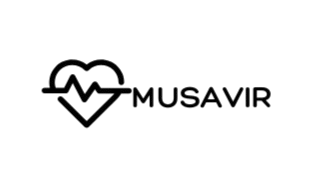

Online treatment, additionally known as online treatment, teletherapy, or e-therapy, provides internet-based mental health assistance via secure internet systems. Individuals can interact with mental health specialists in real-time through messaging, video clips, or phone. For those who reside in remote locations, have busy routines, childcare duties, or limited access to high-quality in-person support, online treatment is an accessible option for psychological wellness requirements.
It is very important to understand the extent of your signs to discover the very best psychological wellness assistance for you. Reflect on the last seven days and respond to the questions listed below. Exactly how often did the detailed signs and symptoms occur?
For every question, provide yourself a score of 0-4, with 0 being “I have actually not experienced these signs and symptoms in all” and 4 being “I experienced this sign non-stop.”
Reminder: Respond to each question on a scale of 0–4 (0 means you did not experience this, and 4 means you experience it continuously).
In the past seven days,
1. Found little rate of interest or enjoyment in doing points.
2. felt down, depressed, or hopeless.
3. Had difficulty falling or staying asleep, or resting way too much.
4. Felt tired or had little energy.
5. Had bad cravings or overate.
6. I felt negative concerning myself—that I was failing or had allowed myself or my family down.
7. Had problems focusing on points, such as reading, functioning, or enjoying television.
8. Moved or spoke so slowly that other individuals could have observed? Or the opposite—was visibly fidgety or troubled.
9. I thought that I would be far better off dead or harming myself in some way.
Accumulate your score and divide it by nine to discover your standard. View the extent graph listed below to determine where your signs land.
Tip: answer each concern on a scale of 0-4 (0 ways you did not experience this, and 4 means you experience it frequently).
In the past seven days,
1. Felt minutes of sudden fear, anxiety, or fright.
2. felt anxious, concerned, or anxious.
3. Had ideas of poor points happening, such as family tragedy, disease, task loss, or crashes.
4. felt an auto-racing heart, perspiring, difficulty breathing, faint, or shaky.
5. Felt stressful muscle mass, got on edge or restless, or had difficulty kicking back or resting.
6 predicted scenarios regarding which I fret.
7. Left circumstances early or took part just minimally as a result of fears.
8. Spent great deals of time choosing, postponing choosing, or preparing for situations as a result of concerns.
9. Sought confidence from others because of fears.
10. Required help to deal with anxiety (e.g., alcohol or medication, superstitious things, or other people).
Add up your rating and split it by ten to locate your standard. View the extent chart below to determine where your signs and symptoms land.
Online treatment exists in lots of types. This technique can be beneficial to those dealing with moderate to modest psychological wellness signs. To participate in Internet therapy, patients will certainly need access to modern technology such as cameras, laptop computers, and a reliable WiFi connection. Online therapy, specifically groups, is most effective when using a tablet computer or laptop, not a mobile phone.
1. Specific counseling: individual counseling with a therapist through a protected video system.
2. Private text or telephone therapy: individually counseling with a specialist via your phone, with more chance for immediate assistance.
3. Self-help groups: Meet practically with peers who have had comparable experiences and offer each other assistance.
4. Mental health and wellness and health apps. Access mental health and wellness resources to enhance your mind and mood.
1. Team therapy: healing support with peers led by a certified specialist using a safe and secure video clip system.
2. Intensive Outpatient Programs (IOPs): extensive online therapy on a secure platform with a mix of specific and group therapy.
If you’re experiencing severe psychological wellness symptoms, you may benefit from an intensive outpatient program or a household therapy remain. Adhering to inpatient therapy, numerous patients take advantage of maintaining their recuperation with solutions appropriate for moderate signs and symptoms, such as team coaching or intensive outpatient programs.
Online offers virtual IOP classes for those who are experiencing moderate mental health symptoms. A flexible and affordable solution, IOPs allow patients to work around their personal and work schedules but still maintain a level of intensity that supports accountability in their recovery. Visit our mood and anxiety page to learn more about intensive outpatient therapy, or book an assessment with one of our counselors.
A few of the most noteworthy benefits for the state of mind and anxiety IOPs are:
1. Skills-based sessions for immediate outcomes.
2. Minimal disruption to function and household.
3. Affordable alternative as compared to private therapy alone.
4. Hassle-free.
5. Evidence-based treatment with tested outcomes.
6. Suitable with a simple online platform and application.
The IOP program is 8 weeks of extensive treatment, 4 times a week, featuring both individual and group treatment. Research studies show that team therapy plays an essential function in healing by creating an intimate assistance network for sharing details and assistance with peers who have comparable experiences.
Complying with the intensive treatment, patients join ten months of aftercare for 2 hours weekly. These groups are used online and consist of the Wagon application, which allows you to track everyday development, achieve your goals, and far better connect with your assigned counselor.

